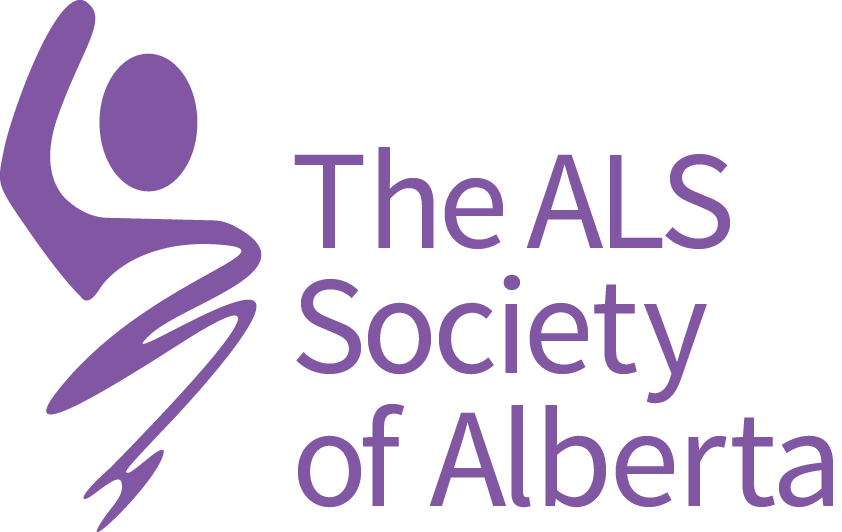After a rigorous competition, the recipients of the 2019 research funding grants have been announced. The ALS Society of Alberta is so honoured to have played a role in helping fund cutting-edge Canadian research. We are so excited to share that nearly $1.4 million has been invested in 16 new Canadian ALS research projects.
For a terminal disease like ALS, that gradually paralyzes people because the brain is no longer able to communicate with the muscles of the body typically moved at will, transformative research is needed to help accelerate understanding of disease progression and provide pathways for future therapies. Continued investment in ALS research fuels the scientific discoveries that will bring hope for a future without the disease.
More than $850,000 is being invested in ten Project Grants, and $540,000 is being invested in six Trainee Awards that will provide momentum for the next generation of promising ALS researchers.
The projects funded will answer questions that will help to accelerate research discovery contributing to the development of potential ALS therapies:
How do unique protein interactions explain TDP-43 behaviour in different people with ALS? $100,000 awarded to Dr. Mohan Babu at the University of Regina.
How do environmental marks on RNA play a role in how ALS is caused? $100,000 awarded to Dr. Patrick Dion at the Montréal Neurological Institute at McGill University.
Does prior exposure to common viruses influence ALS onset and disease progression? $100,000 awarded to Dr. Matthew Miller at McMaster University.
Does a substance in gut or oral bacteria influence the disease course of ALS? $100,000 awarded to Dr. Minh Dang Nguyen at the University of Calgary.
Can a new ALS mouse model provide important information for understanding and treating ALS? $100,000 awarded to Dr. Jeehye Park, at the Hospital for Sick Children (SickKids) Research Institute.
Are the same faulty nerve-muscle connections in ALS mice also occurring in humans? $100,000 awarded to Dr. Richard Robitaille at the Université de Montréal.
What is the role of the annexin A11 gene in ALS disease processes? $100,000 awarded to Dr. Peter St. George-Hyslop at the University of Toronto.
Can advanced technology reveal the role of multiple cell types affecting ALS in humans? $98,400 awarded to Dr. Stefano Stifani at the Montréal Neurological Institute at McGill University.
Can earlier palliative care consultation improve patient and caregiver quality of life? $55,437 awarded to Dr. Jocelyn Zwicker and Dr. Christine Watt at the Ottawa Hospital.
Can speech-recognition technology help diagnose ALS? In partnership with Orangetheory Fitness, $100,000 awarded to Dr. Yana Yunusova at the Sunnybrook Research Institute.
Can an animal model provide new insights into the formation of stress granules? $75,000 awarded to Alicia Dubinski, a PhD student in Dr. Christine Vande Velde’s lab at the Université de Montréal.
What is the role of a newly discovered protein in ALS? La Fondation Vincent Bourque | ALS Canada – Brain Canada Ph.D. Studentship of $75,000 awarded to Myriam Gagné, a PhD student in Dr. Christine Vande Velde’s lab at the Université de Montréal.
Is the loss of normal function of C9ORF72 in a particular cell type a key driver of ALS disease processes? $75,000 awarded to Rahul Kumar, a PhD student in Dr. Peter McPherson ‘s lab at the Montréal Neurological Institute at McGill University.
Is an experimental drug that can prevent abnormal protein behaviour in ALS already out there? La Fondation Vincent Bourque | ALS Canada – Brain Canada Ph.D. Studentship of $75,000 awarded to Marc Shenouda, a PhD student in Dr. Janice Robertson’s lab at the University of Toronto.
Could newly discovered tags on TDP-43 protein explain its abnormal behaviour in ALS? In partnership with Brain Canada, $75,000 awarded to Terry Suk, a PhD student in Dr. Maxime Rousseaux’s lab at the University of Ottawa.
Can new understandings about nuclear speckles lead to new treatment options for ALS? $165,000 awarded to Dr. Ulises Rodríguez Corona, a post-doctoral student in Dr. Marlene Oeffinger’s lab at Institut de recherches cliniques de Montréal (IRCM).
The funding of the 16 research projects followed a competitive peer-review process, which engaged global ALS experts to identify projects grounded in scientific excellence and with the potential to most quickly advance the field of ALS research. The peer review was observed by people who have personal experience with ALS. To find further information on each project please visit https://www.als.ca/research/als-canada-research-program/projects-funded/projects-funded-2019/.

